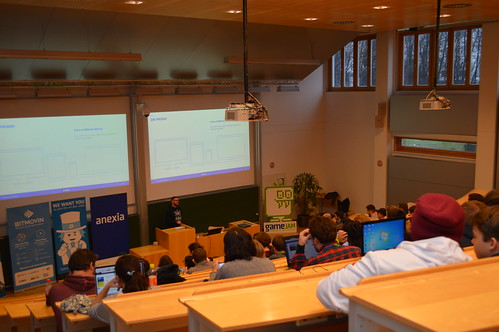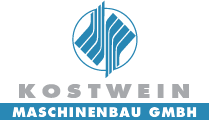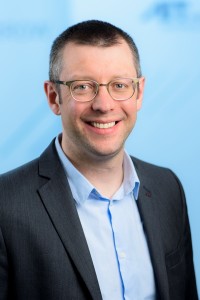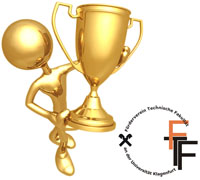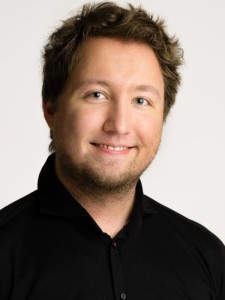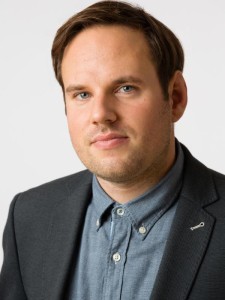Das Vehicle Routing Problem ist ein kombinatorisches Optimierungsproblem, welches ein breites Spektrum an Anwendungen im Bereich der Transportlogistik hat. Diverse Varianten kommen unter anderem bei der Planung von effizienten Liefertouren zum Einsatz. Eines der aktuell bekanntesten Anwendungsgebiete, das in der vorgelegten Arbeit im Detail betrachtet wird, findet sich im Online-Lebensmittelhandel. Hierbei wählt der Kunde auf der Website des Supermarktes ein Zeitfenster für die Zulieferung seines Einkaufes. Im Anschluss muss ein Lieferplan erstellt werden, der alle bisherigen Kundenbestellungen in ihren zugewiesenen Zeitfenstern enthält.
Das diesem Prozess zu Grunde liegende Optimierungsproblem ist das sogenannte capacitated Vehicle Routing Problem with Time Windows (cVRPTW). Es beschreibt die Herausforderung Routen ausgehend von einem Depot kosten-minimal zu planen. Die Ladekapazität der genutzten Lieferfahrzeuge und die maximale Fahrzeit der Fahrer darf hierbei nicht überschritten werden. Des weiteren muss jeder Kunde genau einmal innerhalb des ihm zugewie- senen Zeitfensters besucht werden.
Das cVRPTW gehört zur Klasse der NP-schweren Optimierungsprobleme. Für größere Probleminstanzen, wie sie in der Praxis auftreten, sind daher exakten Methoden, die stets die optimale Lösung liefern, nicht anwendbar. Da es die Online-Anwendung erfordert Lösungen in Echtzeit zu generieren, wurden im Rahmen dieser Arbeit nicht- exakte Methoden, sogenannte Heuristiken, entwickelt, mit deren Hilfe sehr gute Lösungen innerhalb kürzester Zeit gefunden werden können.
Die Basis unserer Methoden bilden lokale Suchheuristiken, welche die aktuelle Lösung mittels einfacher Ver- tauschoperationen iterativ verbessern. Bei der von uns betrachteten Anwendung besitzen die Zeitfenster, die als strukturierte Zeitfenster bezeichnet werden, spezielle Eigenschaften: Es wird angenommen, dass sich die Zeitfenster nicht überlappen und groß genug sind, damit mehrere Kunden innerhalb eines Zeitfensters besucht werden können. Diese Eigenschaften können ausgenutzt werden um den Suchraum der lokalen Operationen einzuschränken und somit unsere Heuristiken entscheidend zu beschleunigen.
Neben Lösungsqualität und Geschwindigkeit und der damit verbundenen ausgezeichneten Skalierbarkeit unserer Algorithmen, wurde von uns besonderer Wert auf die Flexibilität der entwickelten theoretischen Grundlagen gelegt. Dadurch können unsere Methoden jederzeit mit geringem Aufwand an eine Vielzahl von zusätzlichen spezifischen Bedingungen (sogenannte Business-Constraints), die es in der Praxis häufig und oftmals auch erst zu einem späteren Projektzeitpunkt zu berücksichtigen gilt, adaptiert werden.
Die vorgelegte Masterarbeit diente bisher als Ausgangspunkt mehrerer Konferenzvorträge und Publikationen. Bis dato sind zwei Konferenzpapiere entstanden, wobei eines davon bereits zur Veröffentlichung akzeptiert wurde [3] und das andere sich aktuell im Reviewprozess befindet [2]. Außerdem befindet sich derzeit ein Journalartikel [1] in Begutachtung, während ein weiterer Journalartikel in Kürze fertiggestellt wird.
Neben diesen akademischen Resultaten wurde die Praxisrelevanz der erarbeiten Ergebnisse bereits mehrfach unter Beweis gestellt. Die in dieser Arbeit entwickelten Methoden bilden die Grundlagen der Optimierungskom- ponente eines Systems für Online-Lebensmittelbestellungen, welches gemeinsam mit der britischen Firma Satalia für eine der weltweit größten Supermarktketten entwickelt wurde. Mit heutigem Tage befindet sich dieses System bereits in Betrieb und wird derzeit stufenweise in ganz Großbritannien eingeführt. Für weitere Details verweisen wir auf den folgenden, vor Kurzem veröffentlichten Artikel: http://tinyurl.com/cVRPsTW-article.
Literatur
[1] P. Hungerländer, K. Maier, J. Pöcher, A. Rendl, and C. Truden. Solving an on-line capacitated vehicle rou- ting problem with structured time windows. Technical Report TR-AAUK-M-O-16-12-30, Alpen-Adria Universität Klagenfurt, Mathematics, Optimization Group, 2016. A preprint is available from http://www.optimization-online.org/DB_HTML/2017/02/5859.html.
[2] P. Hungerländer, A. Rendl, and C. Truden. On the slot optimization problem in on-line vehicle routing. Technical Report TR-AAUK-M-O-17-04-13, Alpen-Adria Universität Klagenfurt, Mathematics, Optimization Group, 2016. A preprint is available from http://www.optimization-online.org/DB_HTML/2017/04/ 5962.html.
[3] P. Hungerländer, K. Maier, J. Pöcher, A. Rendl, and C. Truden. Solving an on-line capacitated vehicle routing problem with structured time windows. In Operations Research Proceedings 2016, 2017. Accepted, a preprint is available from http://www.optimization-online.org/DB_HTML/2016/12/5764.html.
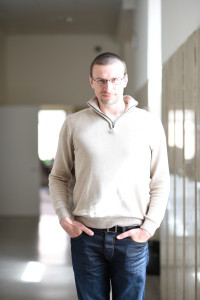 Marko Tkalčič is Assistant Professor at the Faculty of Computer Science at the Free University in Bolzano, Italy. He received his PhD from the Faculty of Electrical Engineering at the University of Ljubljana in 2011. After a postdoc at the University of Ljubljana, he worked as a postdoc at the Johannes Kepler University in Linz, Austria from 2013 to 2015. From 2016 he is with the Free University of Bolzano. His research explores ways in which psychologically-motivated user characteristics, such as emotions and personality, can be used to improve personalized systems. It employs methods such as user studies and machine learning.
Marko Tkalčič is Assistant Professor at the Faculty of Computer Science at the Free University in Bolzano, Italy. He received his PhD from the Faculty of Electrical Engineering at the University of Ljubljana in 2011. After a postdoc at the University of Ljubljana, he worked as a postdoc at the Johannes Kepler University in Linz, Austria from 2013 to 2015. From 2016 he is with the Free University of Bolzano. His research explores ways in which psychologically-motivated user characteristics, such as emotions and personality, can be used to improve personalized systems. It employs methods such as user studies and machine learning.
